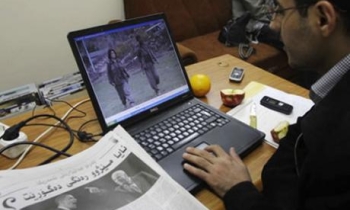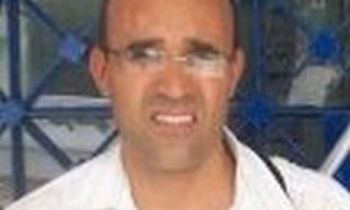Press freedom organisations have expressed alarm at the decision of the Paraguayan Supreme Court of Justice to uphold the criminal defamation conviction of Aldo Zuccolillo, director of the Paraguayan daily ABC Color. The Court ordered Zuccolillo on December 28, 2005 to pay a fine of 1.3 billion guaranÃes (US$ 200,000), the Asunción-based ABC Color reported. Zuccolillo faces 18 lawsuits over articles his newspaper has published in recent years on official corruption.

The ruling marked the end of a legal battle that started in December 1998 when prosecutors took up the case of senator Juan Carlos Galaverna of the ruling Colorado Party who alleged that Zuccolillo had defamed him by publishing articles that accused him of corruption, embezzlement and abuse of power, according to local press reports. Zuccolillo founded ABC Color in 1967. It was shut down in 1984 under military rule and reopened in 1989 after the fall of dictator Alfredo Stroessner.
"It is alarming that a newspaper that stood up to a military dictatorship is being bullied by a barrage of lawsuits in a democracy," said CPJ Executive Director Ann Cooper on January 6. "We call on Paraguayan authorities to stop harassing ABC Color and scrap criminal defamation laws immediately."
To charge an independent media body such an exorbitant fine sets a dangerous precedent for the Paraguayan press. We are talking about a disturbing indication of the impunity enjoyed by some politicians, and of the ambiguity of their relations with the judiciary. We fear that this will result in media self-censorship when it comes to delicate subjects, which would represent a serious set-back to the right to information", Reporters sans Frontières (RSF) said.
Carlos BenÃtez, ABC Color 's judicial correspondent, told CPJ that a judge first sentenced Zuccolillo to a heavy fine in April 2001. Since then, ABC Color has appealed twice without success. It plans to refer the case to the Inter-American Commission on Human Rights (IACHR) in Washington, DC. The commission, which is charged with upholding human rights in the Americas, has the authority to refer cases to the Inter-American Court of Human Rights in Costa Rica whose rulings are binding.
Galaverna, a member of the lower house of the national Congress for the governing Colorado Party, had filed a suit alleging libel and defamation by ABC Color's editor, Aldo Zuccolillo, following reports in the newspaper between June 1997 and December 1998 accusing him of, among other things, "accepting free stays at the Guaranà Hotel in Asunción, being on a list of high-risk bank loan borrowers, influence peddling, and giving political protection to the then president of the National Workers' Bank, who was later sentenced to 10 years in jail for bleeding the bank dry."
"Actions such as this limit and put at risk the possibility of the press to independently investigate alleged wrongdoing by public officials, whose actions must be more exposed to constant public scrutiny," declared Gonzalo MarroquÃn, chairman of the Inter American Press Association (IAPA)'s Committee on Freedom of the Press and Information. "We fear that such court rulings as these could lead to self-censorship by the media and individual journalists, thus jeopardising the public's right to know."

The court ruling seems to contradict a recent Inter-American Court ruling on criminal defamation. In September 2004, the Inter-American Court ruled in the case of Paraguayan politician Ricardo Canese that his criminal defamation conviction violated international law. The court declared that the criminal proceedings themselves violated the American Convention on Human Rights, which Paraguay has ratified, because they were not "necessary in a democratic society."
In an August 2004 ruling that overturned the criminal defamation conviction of Costa Rican journalist Mauricio Herrera Ulloa, the Inter-American Court said that critics of public officials must have "leeway in order for ample debate to take place on matters of public interest."
The IAPA's MarroquÃn, editor of the Guatemala City, Guatemala, newspaper Prensa Libre, said the court should have taken into account that "this case involved a senior government official in a matter of general interest concerning the alleged mismanagement of a public sector bank." He added that "the Paraguayan legal system does not embrace the doctrine of 'real malice,' an essential protection that exists in some other countries."
Real malice, also known as malice aforethought, requires that a plaintiff taking legal action against the press for alleged defamation of a public official must prove that the published information was false and was known [by the accused] to be false.
The IAPA stressed that the principles set out in the Declaration of Chapultepec must be observed – including that which states no news medium nor journalist may be punished for publishing the truth or criticising or denouncing the government – and said it would continue advocating a wider adoption of the international legal concept of real malice.









